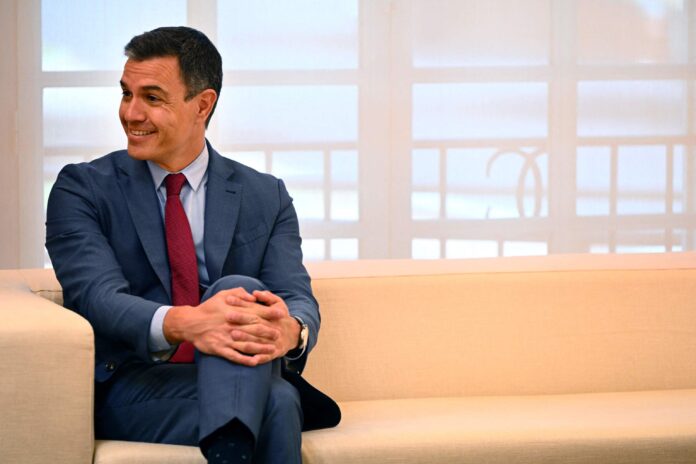The President of the Government, Pedro Sánchez, has personally intervened, in an unusual way, to save the Catalan steel group Celsa in cooperation with the Generalitat de Catalunya. Sánchez has telephoned the president of Deutsche Bank, Christian Sewing, to ask him to reach an agreement with Celsa that allows the Council of Ministers to inject money into the Catalan company from the so-called Solvency Fund for Strategic Companies.
This is the one managed by the State Industrial Participation Company (Sepi) and which proposes a public aid of 550 million to Celsa after a long negotiation. Sánchez’s personal intervention has been advanced by the Bloomberg agency and Moncloa sources have avoided making comments to this newspaper. Other knowledgeable sources point out that the call took place but that it has not moved Deutsche Bank’s position on the case for now.
Deutsche Bank is the main creditor of Celsa within a group of international funds that are in full swing with the president of Celsa, Francesc Rubiralta, on how to distribute public aid. Deutsche and the funds defend until now that the injection that Celsa is going to receive should not entail greater debt relief and Rubiralta accuses them of “vulture funds” in official communications.
The president of the Generalitat, Pere Aragonés, also presents Deutsche and the rest of the creditor funds as “speculators” and wants the central government to revive the company.
The president of the Generalitat, Pere Aragonés, also presents Deutsche and the rest of the creditor funds as “speculators” and wants the central government to revive the company.
The Minister of Economy of the Generalitat, Jaume Giró, spoke this Tuesday about the importance of saving this company with the first vice president, Nadia Calviño, present in Barcelona.
For their part, sources from the German bank quoted by Bloomberg were surprised by Sánchez’s unusual call to its president for an issue that is not one of the most important operations of the European giant today. Other creditors are Cross Ocean Partners, Goldman Sachs or SVPGlobal.
Rubiralta keeps the pulse and has issued a new statement in which he assures that the company’s creditor funds “have never financed the company nor have they been interested in its strategic plan.” The funds, for their part, maintain that “the economic interests of the Rubiralta family are the only impediment to a rescue of Sepi.”
Celsa maintains that the creditor funds acquired the company’s debt from the bank with up to 80% discount in the case of the convertible instrument and 20% in the senior debt, so seeking more money is, in his opinion, “the extraction and expropriation of the value of the company through a return of 80% per year”, which would be supported by public aid and at the expense of workers, suppliers and customers, of its industrial activity, and of the investments necessary for the transition energetic.
Likewise, Celsa recalls that seven autonomous communities, the works committees of all the company’s manufacturing centers in Spain, the state unions and the employers’ association have expressed in recent days “their support for the position of the Celsa Group and its strategic project, industrial and long-term, and in defense of the industrial economy against the speculative economy.
The funds reply that, given the new viability of the company thanks to Sepi, they want to convert their debt into shares, but they reproach the Rubiralta family for not wanting to share the capital or the value creation that the state injection will imply. Of the 2,200 million debt, 1,400 million are convertible, which would place the funds with a minimum of 49% of the capital of the new Celsa.
Conforms to The Trust Project criteria








